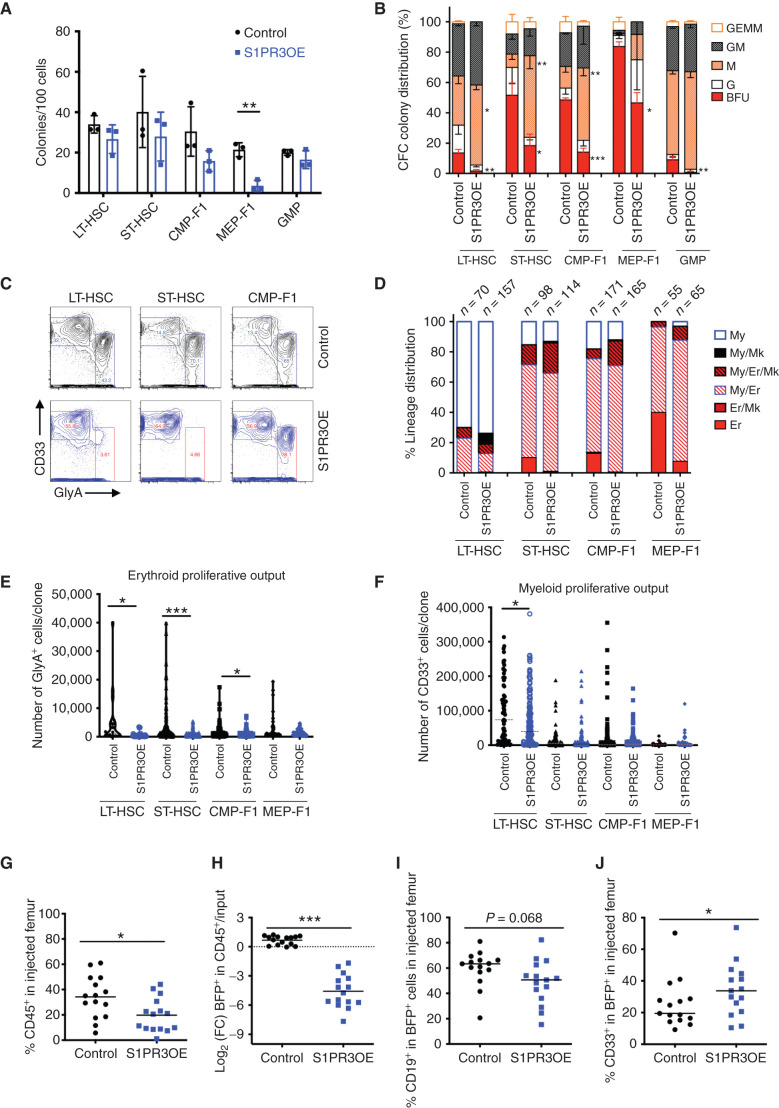Figure 2.
S1PR3OE is sufficient to promote myeloid differentiation in human HSPCs in vitro and in vivo. A, The number of colonies for 100 transduced cells from the indicated populations at 10 days of a CFC assay for control and S1PR3OE lentiviral KD vectors (n = 3). B, Normalized colony distribution showing BFU is significantly decreased with S1PR3OE, and macrophage (M) colonies are significantly increased from all scored cell populations (n = 3 CB). G, granulocyte; GEMM, granulocyte erythrocyte monocyte megakaryocyte; GM, granulocyte monocyte. C, Myeloid (CD33+) versus erythroid (GlyA+) lineage distribution for all pooled cells from one representative assay at day 14 from A. D, Lineage distribution outcomes in single-cell assays performed on MS5 stroma in erythroid–myeloid cytokine conditions. Data for indicated number of cells scored in each condition pooled from three CBs. Er, erythroid; Mk, megakaryocyte; My, myeloid. E and F, Average number of GlyA+ or CD33+ cells from single-cell differentiation assays from D. Human CD45 chimerism (G) and log2 fold change (FC) in BFP (H), which marks transduced cells relative to input. CD19+ B-lymphoid cells in the transduced fraction (I) and CD33+ myeloid cells in BFP+ cells (J) for control or S1PR3OE measured in the injected femur at 4 weeks after transplant in xenotransplantation, with five mice for each condition from three CB. *, P < 0.05; **, P < 0.01; and ***, P < 0.001 (unpaired Student t test). Data are mean and SD except for E and F where data are mean and SEM.

